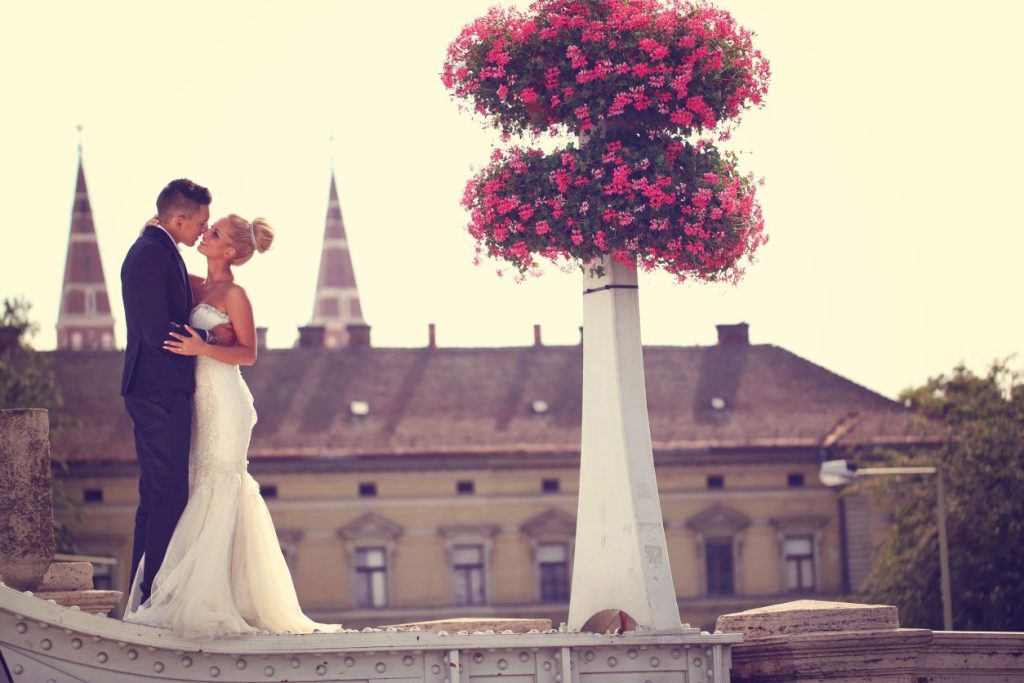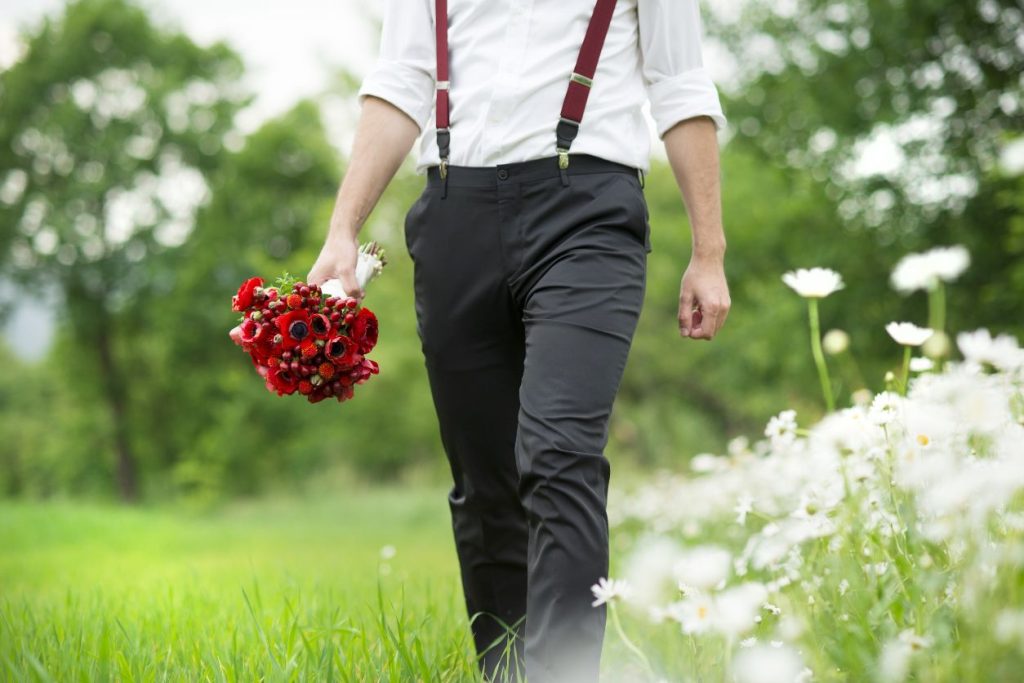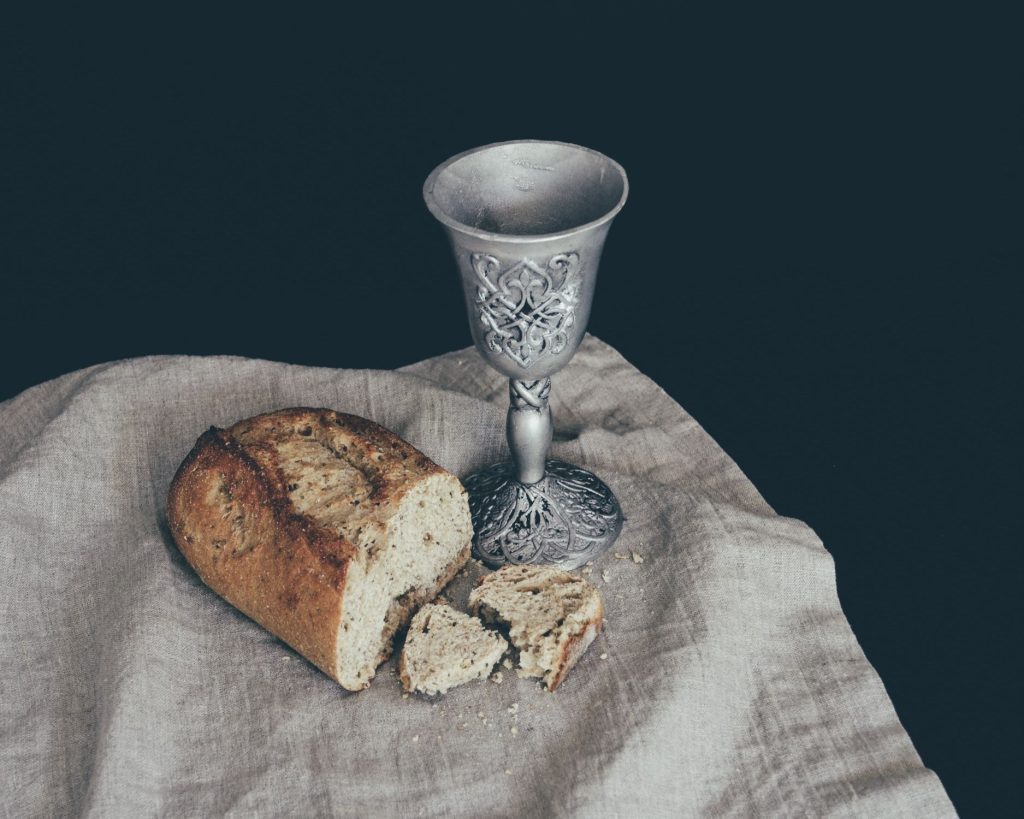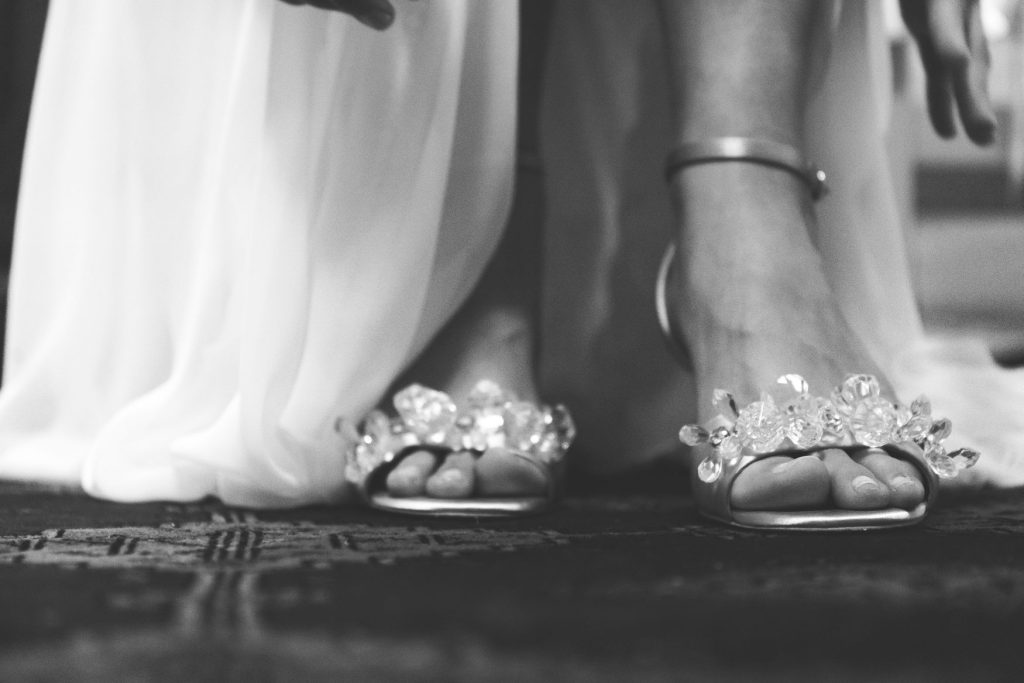Each country has a unique set of wedding traditions, reflecting its rich history and culture. By looking at a country’s wedding traditions, you can get an idea of its population’s identity. Couples tend to incorporate these rituals into their ceremony to show pride in their ancestry.
Austrian wedding traditions are thrilling and unforgettable, involving a lot of superstitions, music, and community. Some traditions include making a quest out of fetching the bride, sawing a log after the ceremony, and kidnapping the newlyweds during the reception. Below are 17 traditions in Austrian weddings you should know.
Memorable Austrian Wedding Traditions

1. Austrian Wedding Superstitions
Like other cultures, Austria has many superstitions surrounding weddings. Each myth or piece of folklore may influence the couple, their families, and their decision-making. As such, these superstitions are all worth exploring.
- Austrians believe in the old English folklore that goes, “Monday for wealth, Tuesday for health, Wednesday the best day of all, Thursday for losses, Friday for crosses, Saturday for no luck at all.” As such, Wednesday and Sunday are the preferred days, while Saturday is an unpopular choice.
- Rain on a couple’s wedding day—especially if it is a storm—is a bad omen. Austrians believe that bad weather equals a bad marriage.
- A bride can only look at herself in the mirror once before leaving for the ceremony. More than that is considered bad luck.
- The bride-to-be might invite bad omens if she tries on her entire wedding attire before the day of the ceremony.
- The bride should not sew her wedding dress; this task is left to the bridesmaids and relatives.
- For good luck, a bride must see any of the following on the day of her wedding: a rainbow, a black cat, a spider, or a person cleaning a chimney.
- One part of the bride’s wedding attire must be worn inside out to confound and dispel the evil spirits trying to get her.
2. Early Start to the Bride’s Day
This tradition is more prevalent in the northern regions of Austria. People must wake the bride up extremely early on her wedding day—she must be awake by dawn.
They would do this by firing gunshots (which only a gunner can do) or setting off firecrackers. They can also use loud music, claps, and shouts.
Traditionally, only unmarried men from the same village can carry out this custom. In modern times, any close friends, relatives, and guests of the wedding can partake in the tradition. Either way, everyone in the community must be informed so that they will not be surprised by the noise.
Austrians who practice this custom believe that the noise will keep bad spirits away, ensuring the couple’s joy, good fortune, and fertility.
3. A Quest to Find the Bride

In an old Austrian wedding ritual, the groom must fetch the bride before their wedding. Traditionally, the bride would be taken by other people from her parents’ house, and the groom must visit various pubs to search for his bride. At the same time, the groom must pay for any tab not yet settled in the pubs.
Nowadays, a less complicated—and more budget-friendly—version of this tradition is practiced. The bride would be taken to the best man’s house, and the groom must fetch her there with a bridal bouquet in hand. Likewise, a lot of music also plays as the groom walks with his wedding party.
Once together, the groom and bride will travel to the wedding venue by car. However, neighbors and guests might stand in the way; they will give them tasks the couple must accomplish before heading to their ceremony.
Regardless of the version practiced, this Austrian wedding custom symbolizes the couple’s readiness to enter married life.
4. Civil Ceremony Must Take Place
Austrians are free to hold any type of ceremony they wish, be it religious, humanist, and whatnot. However, according to the law, they must have a civil ceremony so that their marriage is legally recognized.
Typically, nearlyweds will go register their union at the pertinent offices first. Afterward, they will head to the church—or wherever their wedding venue is—with their guests following suit.
5. Cute Flower Children
It is a European wedding tradition to have a flower girl and a flower boy at the ceremony. They will each carry a basket full of flower petals, which the guests will use to shower the newlyweds with after the ceremony. This act is a prayer for fertility.
6. Order of the Entrance to the Venue
As mentioned above, Austrian couples must go to a registry office first for their marriage to be recognized. For couples who choose to hold another wedding somewhere else, they have a few options for how to get there.
From the registry office, many couples opt to walk straight to the church with their guests right behind them. This procession is called Ehrenzug.
Oppositely, your guests can arrive first. You will follow them into the venue. More and more couples are also following the Western tradition of the bride walking down the aisle with her father.
7. Guards of Honor at the Exit
This act, rooted in military tradition, symbolizes the fact that the newlyweds will face challenges and obstacles in married life. Likewise, they can count on their friends and families to be there for them.
8. Sawing a Log Together
After a church ceremony, the newlyweds will exit the venue. A log is placed outside, and the couple will be presented with a two-handled saw.
This unique but symbolic Austrian wedding tradition exemplifies the saying, ‘Teamwork makes the dream work.’ The couple will only get through this test or obstacle by working together.
9. Agape: Communal Feast

Agape translates to ‘love’ in Greek. As its translation denotes, this tradition in Austrian weddings is the perfect illustration of communal love and celebration.
After the ceremony, the couple will serve food that is simple, easy to prepare, and ideal for sharing. Oftentimes, you will see bread, wine, and salt.
This Austrian wedding custom has roots in the country’s rich Christian history. It is an amazing way to unite your community in the name of love and faith.
Another feast awaits the guests once they reach the reception location, with the host welcoming them with more bread and salt. This respectful gesture represents the host’s wish for the newlyweds to have a bountiful life.
In certain regions of Austria, the new wife must head to the kitchen. Only she can add salt to the soup, adjusting the taste to her liking before serving it to the guests.
10. A Bag of Almonds for Guests
In this quirky but meaningful Austrian wedding tradition, newlyweds will give all their guests a bag of five almonds. This custom is derived from a saying wherein each almond represents something: love, success, health, luck, and blessings.
11. Viennese Waltz
A staple in Austrian receptions since the 18th century, the Viennese waltz is a waltz performed by the newlyweds—typically their first dance together.
After his turn with his wife, the groom will ask for her mother’s hand for the next dance. Once they finish the waltz, the guests can start flocking to the dance floor.
12. Kidnapping the Newlyweds
During the reception, friends of the newlyweds must plan an elaborate scheme to ‘kidnap’ the bride. No one can notice it happening, and it must be kept hidden for as long as possible. The bride will be taken to different bars in the area, spending money on drinks as they go.
In some cases, a ‘double kidnapping’ can happen. The same will be done to the groom. Regardless of whether he is kidnapped or not, the groom must try to find his bride. Once he does, he might need to pay a ransom—or a round of drinks for everyone involved.
Nowadays, this Austrian wedding tradition is a bit controversial. However, it is still widely practiced for the fun it brings and its symbolism: the bride is no longer in her maiden family’s household, and she is starting a new chapter of her life.
13. Competition for Head of the Household
A silly competition for the title of ‘Head of the Household’ ensues between the newlyweds at their reception. Whoever spends money on something first wins the title. It is the wife who frequently wins—typically by buying something like a pin or a clip from a bridesmaid.
14. Bidding for the Bride’s Shoes

Once the ceremony and reception have ended, the bride’s shoes are put up for auction. However, according to tradition, the highest bid must come from either the bride’s father or her husband. This symbolizes his ability to support the bride and uphold her honor.
The money they get from the auction can help pay for wedding-related bills, be added to their honeymoon funds, or be set aside as savings.
15. Carrying the Bride Over the Threshold
As the newlyweds enter their home, it is an Austrian wedding custom for the husband to carry his wife over the threshold. Austrians believe that there are evil spirits under the threshold, and the wife must be protected from these spirits to ensure their future family’s safety and prosperity.
16. Bread and Wine Before Bed
Once the celebrations are done, the newlyweds must have some bread and wine before going inside their home. After they are done, the groom must throw his empty glass over the roof. This act represents their wish for good luck.
In some areas, the newlyweds must drink wine immediately after they exit the wedding venue. They will both throw their glasses onto the floor and break them, with the shards representing a happy married life.
17. Small Gift the Next Day
The day after their wedding, it is an Austrian wedding tradition for grooms to give their brides a small gift. This dower ensures the wife’s financial security—especially if something were to happen to her husband.


